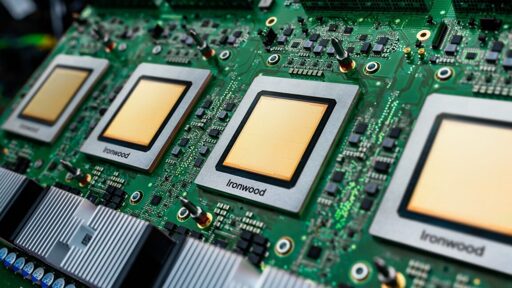It was probably always when, not if, Google would add its name to the list of companies intrigued by the potential of orbiting data centers.
Google announced Tuesday a new initiative, named Project Suncatcher, to examine the feasibility of bringing artificial intelligence to space. The idea is to deploy swarms of satellites in low-Earth orbit, each carrying Google’s AI accelerator chips designed for training, content generation, synthetic speech and vision, and predictive modeling. Google calls these chips Tensor Processing Units, or TPUs.
“Project Suncatcher is a moonshot exploring a new frontier: equipping solar-powered satellite constellations with TPUs and free-space optical links to one day scale machine learning compute in space,” Google wrote in a blog post.
“Like any moonshot, it’s going to require us to solve a lot of complex engineering challenges,” Google’s CEO, Sundar Pichai, wrote on X. Pichai noted that Google’s early tests show the company’s TPUs can withstand the intense radiation they will encounter in space. “However, significant challenges still remain like thermal management and on-orbit system reliability.”



Oh man, I completely didn’t think about maintenance. Yeah, a data center will typically have several hard drives swapped per day. You’d have to have life support and a staff up there, as well as frequent resupply trips.